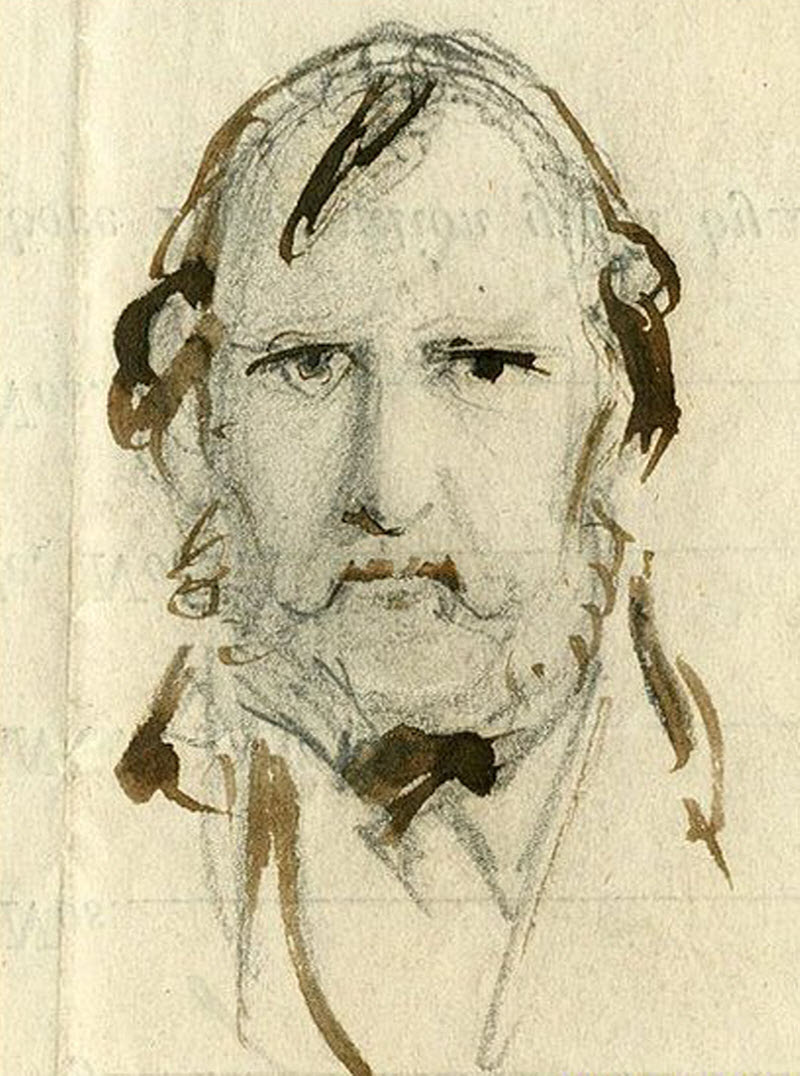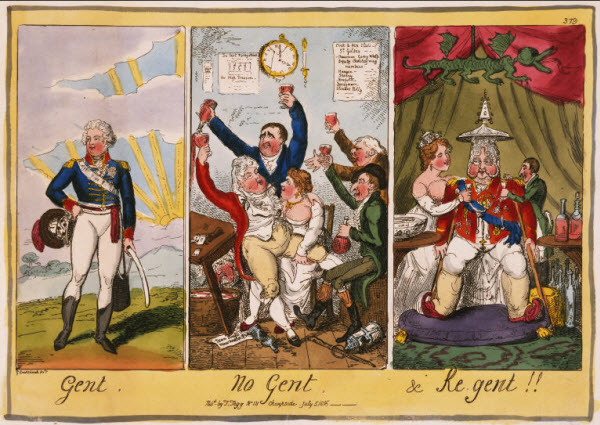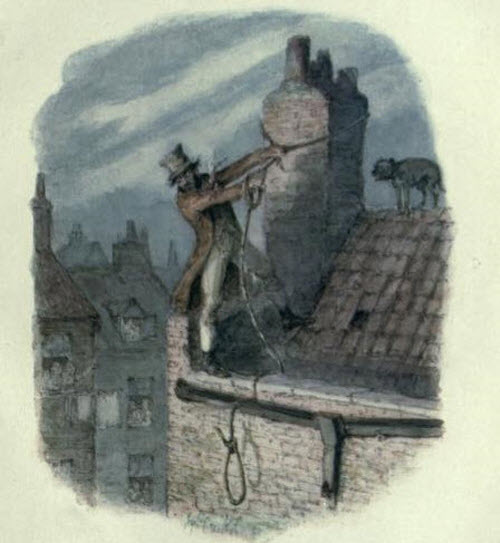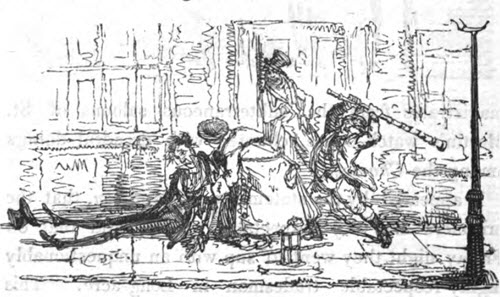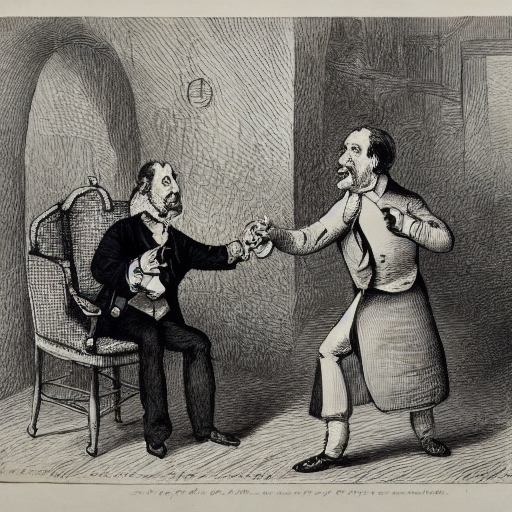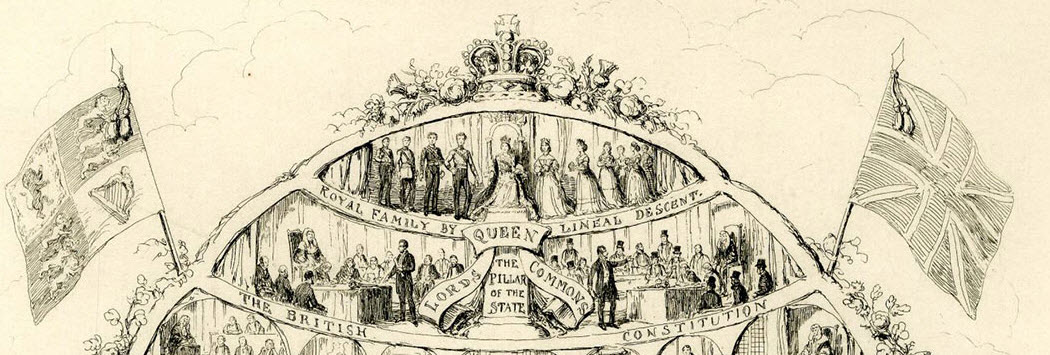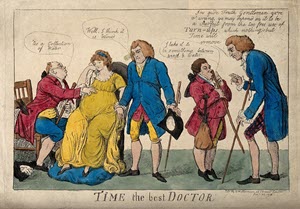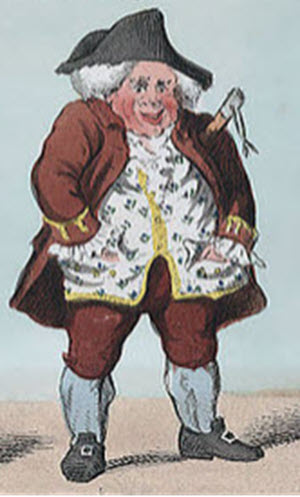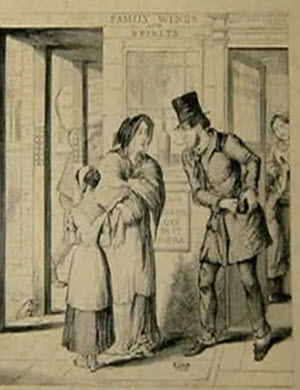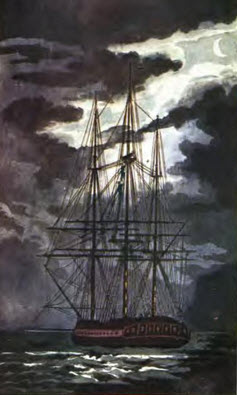
The Scourge, was a satirical magazine which billed itself as "a Monthly Expositor of Imposture and Folly.' Now almost completely forgotten, the Scourge was part of the flowering of free speech in the British press which occurred during the Victorian era. Publishers and writers pushed the conventions of public decency and attacked various social institutions including the Royal Family. In its brief publication history from 1811 to 1816, the Scourge managed to shock and scandalize the establishment with its caricatures and satires of important figures. It was seen as "scurrilous" at the time.
The magazine's publisher was John Mitford (22 January 1782 - 24 December 1831). Known by his well-deserved nickname “Mad Mitford,” Mitford had an interesting life as a British naval officer, writer, journalist, drunkard and poorhouse inmate. He died at age 49 as a result of hard living, poverty and alcoholism. Although he was acknowledged as being a classical scholar and writer of some talent, Mitford largely squandered it through his love of drink. As one critic put it in an article on Mitford appearing in the June 1887 edition of the Monthly Chronicle of Country Lore and Legend:
Jack was a respectable classical scholar, and possessed some literary ability; but, instead of devoting his talents to any useful purpose, he prostituted them to the lowest ends. Drink, drink, drink! became his besetment and from the day it did so his ignoble fate was sealed.
Mitford's short lived magazine is connected with George Cruikshank in that this was one of the first magazines to publish Cruikshank's caricatures. However, to the extent that Mitford is remembered at all it is not for the Scourge, but for a forgettable poem called “The adventures of Johnny Newcome in the navy,” a poem in four cantos, illustrated by Thomas Rowlandson. Johny Newcome was a generic term for all new recruits in the Royal Navy. It is said that the author wrote his poetic masterpiece while living as a vagabond in a gravel pit, his publisher giving him a little bit of money so that he could buy bread and cheese while he wrote it.
